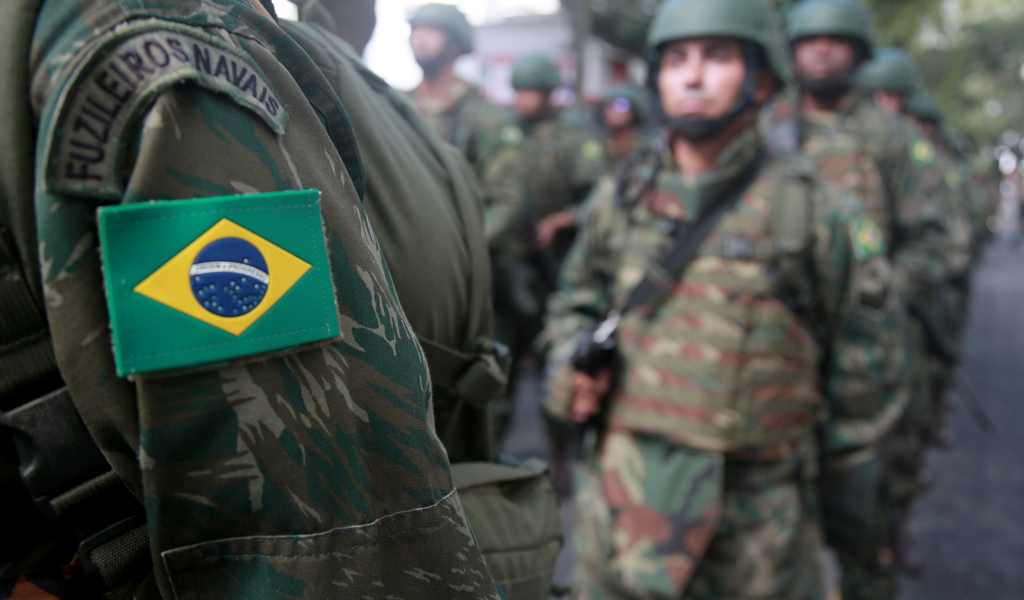Six decades after the 1964 coup, Brazil’s military continues to be a focal point for political polarisation. Dr Andreza Aruska de Souza Santos will present new evidence on economic and political drivers of interest in military careers, as part of a broader discussion on youth, the military and political polarisation in Brazil.

Using novel data from a survey of 2,055 Brazilians aged between 16 and 26, Andreza Aruska de Souza Santos, Director of the King’s Brazil Institute, will explore youth motivation to pursue military careers. The survey results found that non-white men were more likely to enter the military. Economic affluence negatively influenced prospects for police careers while showing a non-significant positive effect on interest in the armed forces. The study also found that individuals with more conservative views and values were more likely to pursue roles in the military police or the armed forces.
It is commonly understood that the consequences of the COVID-19 pandemic include a decline in economic opportunities in cities across the world, with young people, especially those not yet in the labour market and unable to join a university first or second degree, being strongly hit by a combination of lack of job vacancies and lack of work experience. In Brazil, young people out of the job market were known, in the years following the last economic recession (2015-16), as “neither-nor” (nem-nem); neither were they looking for a job, nor were they working or studying. In such situations, military recruitment thrives as it is relatively easily accessible, focused on young people, and almost universally present. These findings indicate that research on the growth of militarisation in places like Brazil needs to include more nuanced interpretations related to economic opportunity.
Arthur de Queiroz Campos Araújo (School of Global Studies) will discuss the evidence presented by Andreza in the light of his own research on young indigenous men and the military in the Brazilian Amazon, and Miguel Loureiro (IDS Governance Research Cluster) will reflect on the implications for a new IDS research collaboration with Cebrap and other partners on youth political polarisation in Brazil, India, South Africa and the UK.
Speakers
- Andreza Aruska de Souza Santos, Director of the King’s Brazil Institute at King’s College London (KCL).
Discussant
- Arthur de Queiroz Campos Araújo, Social Anthropology PhD, School of Global Studies, University of Sussex (UoS)
Chair
- Miguel Loureiro, Fellow, Institute of Development Studies (IDS)
How to attend
All are welcome. You can watch in-person or register to watch online on Zoom.
Accessibility
The event will take place in Room 221 which is on the 2nd floor of the IDS building. If you need to use the lift then press floor 2. If you have any accessibility needs for this event please email: [email protected]
Privacy
This lecture will also be streamed on the platform Zoom. View Zoom’s privacy settings.
